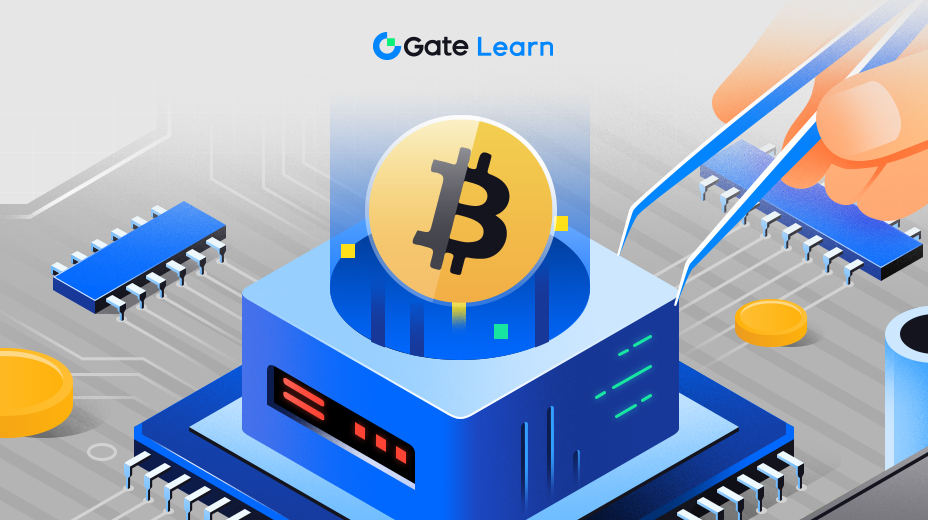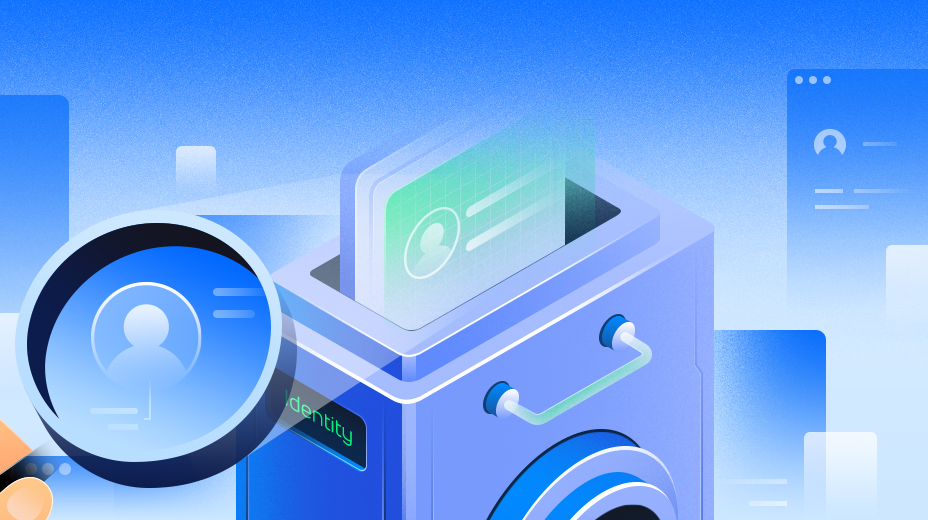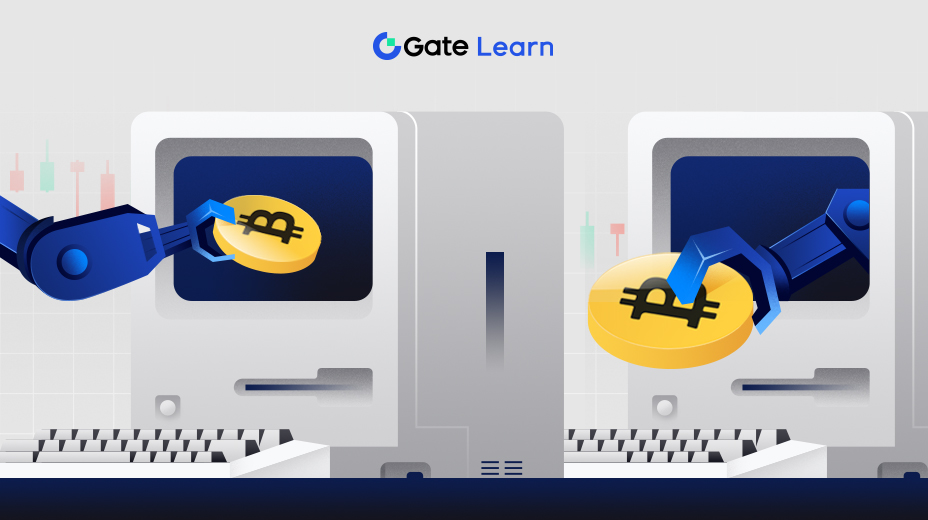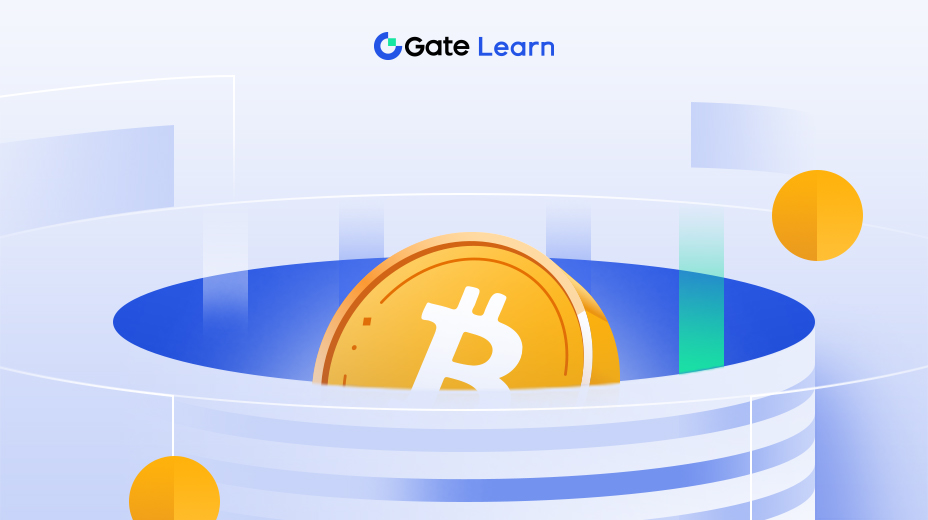Pools miniers et Cloud Mining
L'extraction de bitcoins est une opération qui prend du temps et qui nécessite l'utilisation de technologies et de logiciels spécialisés. S'il est possible de miner soi-même de la crypto-monnaie, il peut être difficile de rivaliser avec des opérations de minage plus importantes qui ont accès à une plus grande puissance informatique. Rejoindre un pool de minage ou utiliser des services de minage en nuage sont deux façons d'améliorer vos chances de miner de la crypto-monnaie. Dans cette session, nous examinerons les pools miniers et le cloud mining, ainsi que les avantages et les inconvénients de chacun d'entre eux.
Qu'est-ce qu'un pool minier ?

Les pools miniers sont des groupes de mineurs qui mettent en commun leurs ressources informatiques afin de maximiser leurs chances de recevoir des récompenses. Au lieu d'être en concurrence, les membres du pool collaborent pour résoudre les blocages et se répartissent les récompenses en fonction de leurs contributions. Les mineurs peuvent recevoir des récompenses de manière plus régulière et réduire la volatilité de leurs revenus en partageant les ressources.
Comment participer à un pool minier ?
Rejoindre un pool minier est un processus simple. Choisissez un pool qui prend en charge la crypto-monnaie que vous souhaitez exploiter, ouvrez un compte, puis configurez votre programme d'exploitation minière pour qu'il se connecte au serveur du pool. Pour couvrir les frais de fonctionnement du pool, la plupart des pools miniers demandent aux mineurs de payer une redevance nominale, généralement un pourcentage de leurs gains.
Les meilleurs pools miniers
Il existe de nombreux pools miniers, chacun ayant sa propre structure de coûts, son propre seuil de paiement et sa propre fréquence de paiement. Votre matériel de minage, la crypto-monnaie que vous souhaitez extraire et vos préférences personnelles influenceront le choix du pool de minage qui vous convient le mieux. Voici quelques-uns des meilleurs pools miniers en termes de réputation, de fiabilité et de frais :
- F2Pool : L'un des plus grands pools miniers, il prend en charge une variété de crypto-monnaies et offre une interface facile à utiliser.
- Poolin : Un autre pool minier important qui accepte diverses crypto-monnaies, dont les frais sont minimes et qui offre un large éventail de possibilités de récompenses.
- Antpool : Le plus ancien pool minier de Bitmain, qui prend en charge Bitcoin, Litecoin et Ethereum.
- Slush Pool : Slush Pool est l'un des premiers pools miniers, et il prend en charge Bitcoin et Zcash avec un seuil de paiement bas.
- BTC.com : L'énorme pool minier de Bitmain, qui prend en charge le Bitcoin, le Bitcoin Cash et l'Ethereum et qui a un taux de transfert élevé.

Qu'est-ce que le cloud mining ?

Le minage en nuage est un service qui permet aux clients de louer du matériel de minage et de partager les gains sans avoir à posséder ou à entretenir le matériel. Les entreprises de minage en nuage exploitent d'énormes centres de données équipés de machines de minage sophistiquées et facturent aux consommateurs des contrats de minage. Les clients peuvent sélectionner la crypto-monnaie à extraire ainsi que la durée du contrat.
Comment choisir un fournisseur de services d'exploitation minière en nuage (Cloud Mining)
Le choix d'un fournisseur de cloud mining peut s'avérer difficile en raison de l'abondance de fournisseurs frauduleux sur le marché. Il est essentiel d'effectuer des recherches et de sélectionner une entreprise fiable ayant fait ses preuves. Recherchez des prestataires qui sont transparents dans leurs activités, qui ont un excellent retour d'information de la part de leurs clients et qui proposent des prix compétitifs.
Principaux fournisseurs de services d'exploitation minière en nuage
Sur la base de leur réputation, de leur fiabilité et de leurs coûts, voici quelques-uns des meilleurs fournisseurs de services d'exploitation minière en nuage :
- Hashflare : Fournit une interface conviviale et propose des contrats de minage en nuage pour Bitcoin, Ethereum, Litecoin et d'autres crypto-monnaies.
- Notre service de Cloud Mining : Gate.com Cloud Mining | Trusted Crypto Cloud Mining
- Genesis Mining : Genesis Mining est en activité depuis 2013 et fournit des contrats de minage en nuage pour Bitcoin, Ethereum, Litecoin et d'autres cryptocurrencies.
- NiceHash : Une place de marché pour l'achat et la vente de puissance minière qui prend en charge plusieurs crypto-monnaies et dont les coûts sont peu élevés.
- Eobot : Fournit des contrats de minage en nuage pour Bitcoin, Ethereum, Litecoin et d'autres crypto-monnaies, ainsi que la possibilité pour les clients de miner plusieurs crypto-monnaies en même temps.
Différence, risques et avantages de l'utilisation d'un pool minier ou de l'exploitation minière en nuage (cloud mining)
En ce qui concerne le minage de crypto-monnaies, il existe deux méthodes populaires pour augmenter vos chances de recevoir des récompenses : rejoindre un pool de minage ou utiliser des services de minage en nuage (cloud mining). Bien qu'ils servent tous deux le même objectif, il existe de nettes différences entre les deux. Les pools de minage impliquent un groupe de mineurs qui travaillent ensemble pour maximiser leur puissance de calcul et améliorer leurs chances de recevoir des récompenses, tandis que le minage en nuage implique la location de matériel de minage auprès d'un fournisseur tiers.
Les avantages des pools miniers
Le principal avantage de rejoindre un pool minier est d'augmenter les chances de miner un bloc et d'obtenir un paiement. Un mineur peut augmenter sa puissance de hachage et accroître ses chances de résoudre un bloc en combinant ses ressources avec celles d'autres mineurs. Les pools miniers offrent également un flux de revenus plus constant et prévisible, car les récompenses sont distribuées en fonction de la participation d'un mineur au pool. Un autre avantage des pools miniers est qu'ils incluent souvent des services supplémentaires tels que des statistiques détaillées, des interfaces conviviales et une assistance.
Risques liés aux pools miniers
Si les pools miniers présentent de nombreux avantages, ils ont aussi quelques inconvénients. L'une des préoccupations les plus sérieuses est que les mineurs doivent confier leurs fonds à l'opérateur du pool minier. Étant donné que l'opérateur du pool minier contrôle les récompenses, il est possible qu'il retienne de l'argent ou qu'il se livre à des activités frauduleuses. En outre, comme les mineurs doivent partager leurs gains avec d'autres mineurs du pool, les revenus sont souvent inférieurs à ceux qu'ils obtiendraient s'ils travaillaient seuls.
Les avantages du Cloud Mining
L'un des principaux avantages de l'exploitation minière en nuage est la suppression de la maintenance du matériel et des factures d'électricité. Les mineurs utilisent le minage en nuage pour louer la puissance de calcul d'un service et recevoir une part des bénéfices. Il est ainsi plus facile et moins coûteux pour les nouveaux mineurs de démarrer. En outre, les sociétés de cloud mining disposent souvent d'opérations minières à grande échelle et ont accès à du matériel minier de pointe, ce qui peut se traduire par de meilleurs revenus pour le mineur.
Les risques du Cloud Mining
Si le cloud mining peut sembler une option attrayante, il est tout aussi essentiel d'être conscient des risques qui y sont associés. L'omniprésence de fournisseurs frauduleux de services d'exploitation minière dans les nuages, qui prétendent à des rendements élevés mais ne tiennent pas leurs promesses, est une source de préoccupation importante. Pour éviter les fraudes, les mineurs doivent effectuer des recherches approfondies avant de choisir un fournisseur de services d'exploitation minière en nuage. En outre, comme le fournisseur contrôle le matériel d'exploitation minière, il est possible que des changements rapides dans la difficulté d'exploitation ou dans les prix des crypto-monnaies affectent les bénéfices. Enfin, comme les mineurs ne possèdent pas le matériel, ils n'ont aucun contrôle sur son entretien ou ses mises à jour, ce qui peut entraîner une baisse des revenus, voire des pertes.





